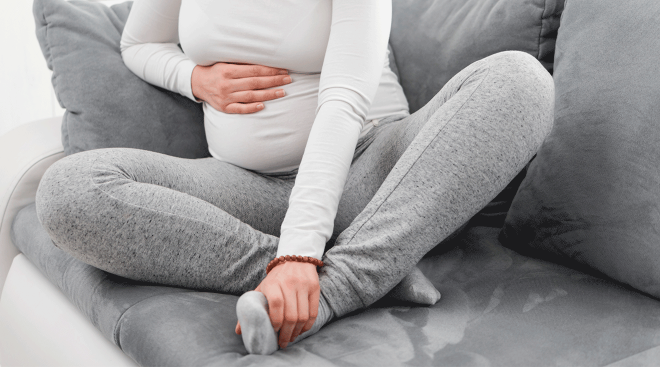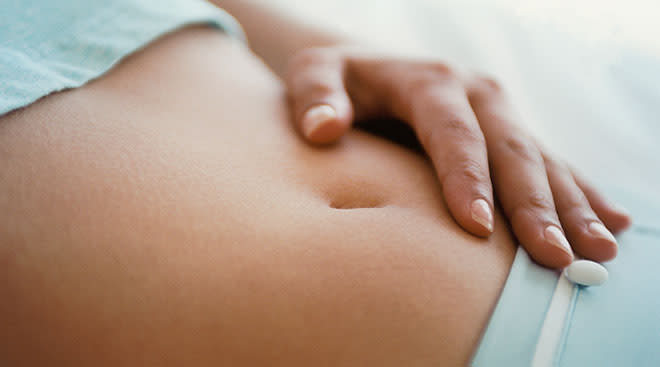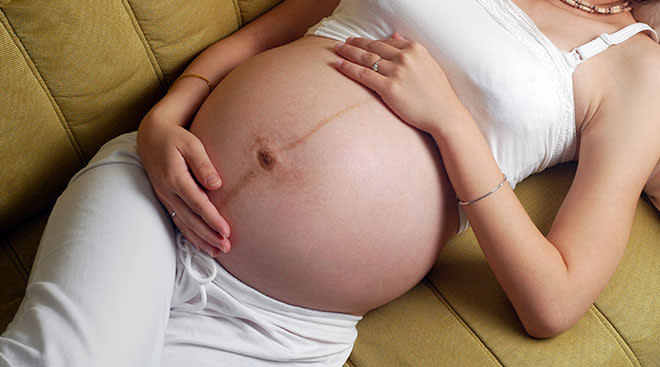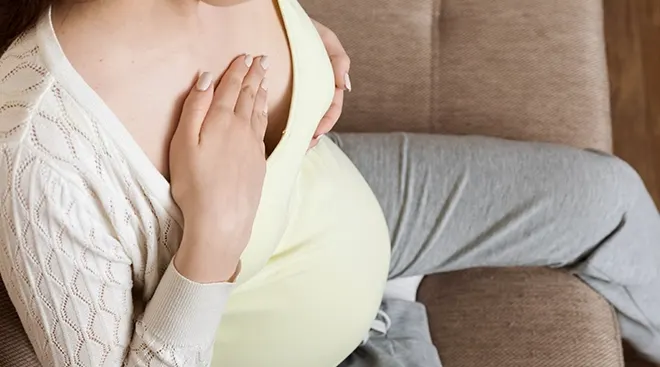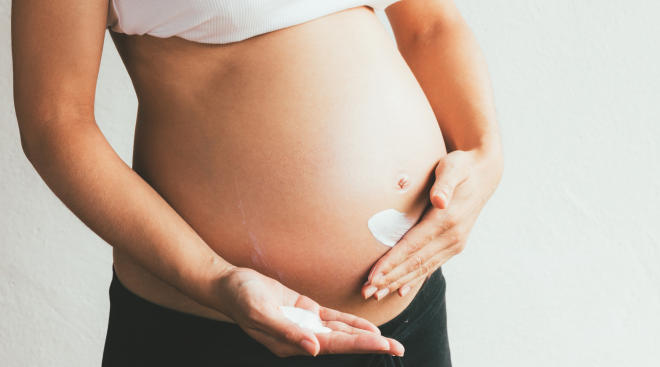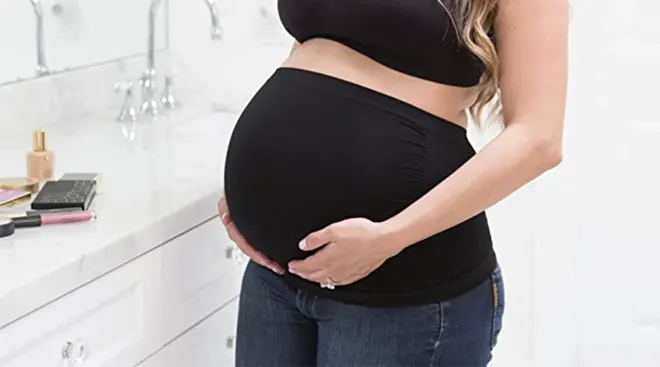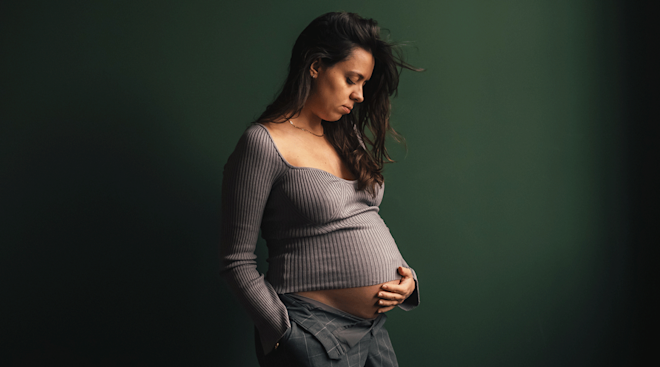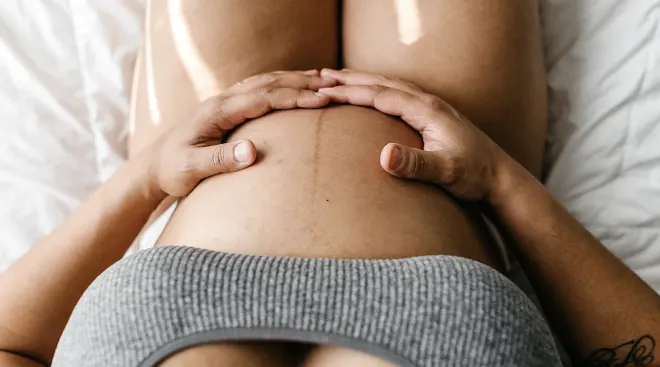Why You Might Be Having Chest Pain During Pregnancy (and What to Do)
Despite sore feet and aching backs, the vast majority of pregnant women will plow through their day, accepting that discomfort is par for the course when you’re carrying a human inside of you. But when chest pain hits, it can be nevertheless unnerving. So we spoke to experts to find out what causes it and whether it’s something dangerous. (Spoiler alert: in the vast majority of cases, it’s normal, though in rare cases it can be problematic.) Here’s what you need to know about chest pain during pregnancy.
Believe it or not, yes—chest pain during pregnancy is common for most women, although it’s usually “periodic and mild,” explains Sherry A. Ross, MD, an ob-gyn at Providence Saint John’s Health Center in Santa Monica, California. In fact, she says, “pregnancy is the most common cause of a nonspecific chest pain, especially during the second and third trimester.”
That’s because your body is changing and your hormones are shifting, and you’ll feel it in areas of your body you wouldn’t expect, says Ross, who is also the author of She-ology and She-ology, the She-quel. So in some sense, you might consider chest pain a symptom of pregnancy. Note, however, that severe chest pain during pregnancy is not normal and requires medical attention right away (see below).
What’s causing your chest pain during pregnancy can depend on when it occurs.
Chest pain in early pregnancy is often related to heartburn. That’s because the stomach has a harder time emptying its contents into the intestines, leaving acid in the stomach for longer periods of time. To treat heartburn, Ross recommends taking antacids, such as Tums, and avoiding heartburn culprits, such spicy foods and citrus.
Chest pain in middle or late pregnancy usually happens because of the changes associated with pregnancy. “A growing baby makes the uterus put additional pressure on the intestines, lungs and stomach, which then pushes up and into the chest cavity,” Ross says. Pain under the liver and stomach area can also radiate into the chest, causing intermittent pain. This pain is typically accompanied with having a smaller appetite (because of the pressure on your stomach) and a shortness of breath (because of pressure on the lungs).
In addition, chest pain in pregnancy can occur as the muscles between the ribs stretch and expand to accommodate the growing uterus and chest cavity. This type of pain can feel more muscular and spread throughout the chest area.
Whether your discomfort is being caused by your growing baby or expanding muscles, in each of these cases, the chest pain will subside on its own as the uterus grows and baby starts shifting positions. In the meantime, a heating pad and scaling back on physical activity can ease the aches.
You might also feel some chest discomfort in pregnancy when lying on your back. In this case, you may experience a shortness of breath, sweating and lightheadedness. The reason? Your uterus is compressing the vena cava and aorta, says G. Thomas Ruiz, MD, ob-gyn lead at MemorialCare Orange Coast Medical Center in Fountain Valley, California. For relief, sleep on your left side.
Far less common, chest pain during pregnancy could be associated with certain concerning health conditions, such as high blood pressure (otherwise known as gestational hypertension), pre-eclampsia) or a potential heart attack. In this case, your doctor will closely monitor your blood pressure, blood work and fetal well being. They might suggest modifying your activity level and (if it’s a cardiac problem) monitor your heart. Under severe circumstances, the doctor might recommend delivering baby early.
It’s understandable to think that chest pain during pregnancy, or even trouble breathing, is instant cause for alarm. But the truth is, that’s not always the case—as many as 70 percent of pregnant women have difficulty breathing simply because of the physical changes they’re experiencing as baby grows. “This makes it difficult to diagnose medical emergencies, such as a pulmonary embolism or heart attack,” Ruiz says.
Trust your gut. Most chest pain in pregnancy is benign, but if something doesn’t feel right, call your doctor—especially if you experience pain without warning or if it’s severe. Sudden, sharp chest pain as you breathe, accompanied by shortness of breath and nausea, can be a sign of a blood clot to the lung. Chest pain that radiates to the left arm or jaw, sweating, dizziness, visual changes, and/or nausea may be a sign of a heart attack. Get to the doctor right away.
Please note: The Bump and the materials and information it contains are not intended to, and do not constitute, medical or other health advice or diagnosis and should not be used as such. You should always consult with a qualified physician or health professional about your specific circumstances.
Plus, more from The Bump:
Sherry A. Ross, MD, is an ob-gyn and women’s health expert at Providence Saint John’s Health Center in Santa Monica, California, and author of she-ology and she-ology, the she-quel: let’s continue the conversation.
G. Thomas Ruiz, MD, is the lead ob-gyn at MemorialCare Orange Coast Medical Center in Fountain Valley, California. He earned his medical degree from UC Irvine School of Medicine and has been practicing medicine in Orange County since 1993.
Navigate forward to interact with the calendar and select a date. Press the question mark key to get the keyboard shortcuts for changing dates.

































